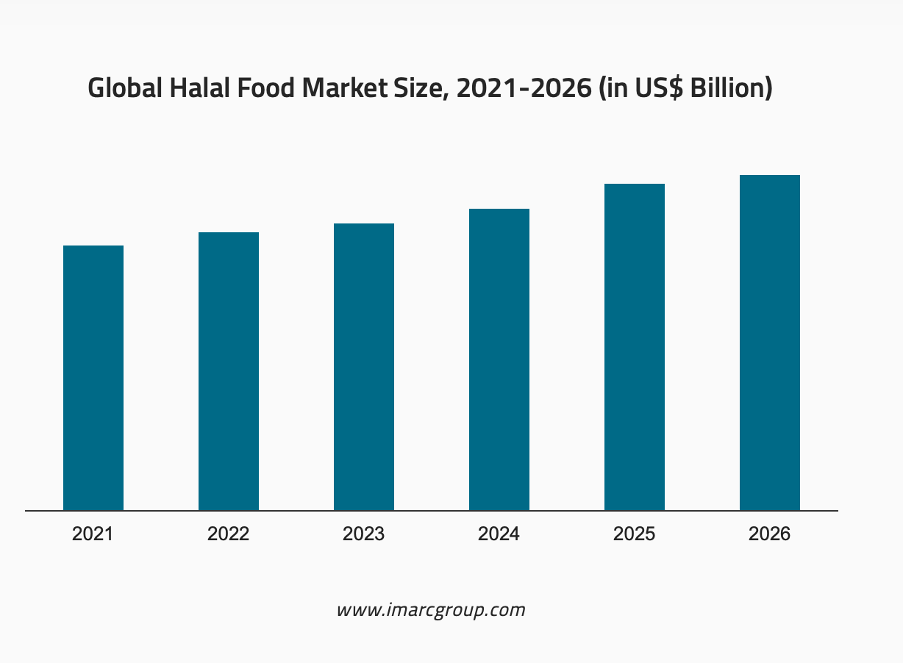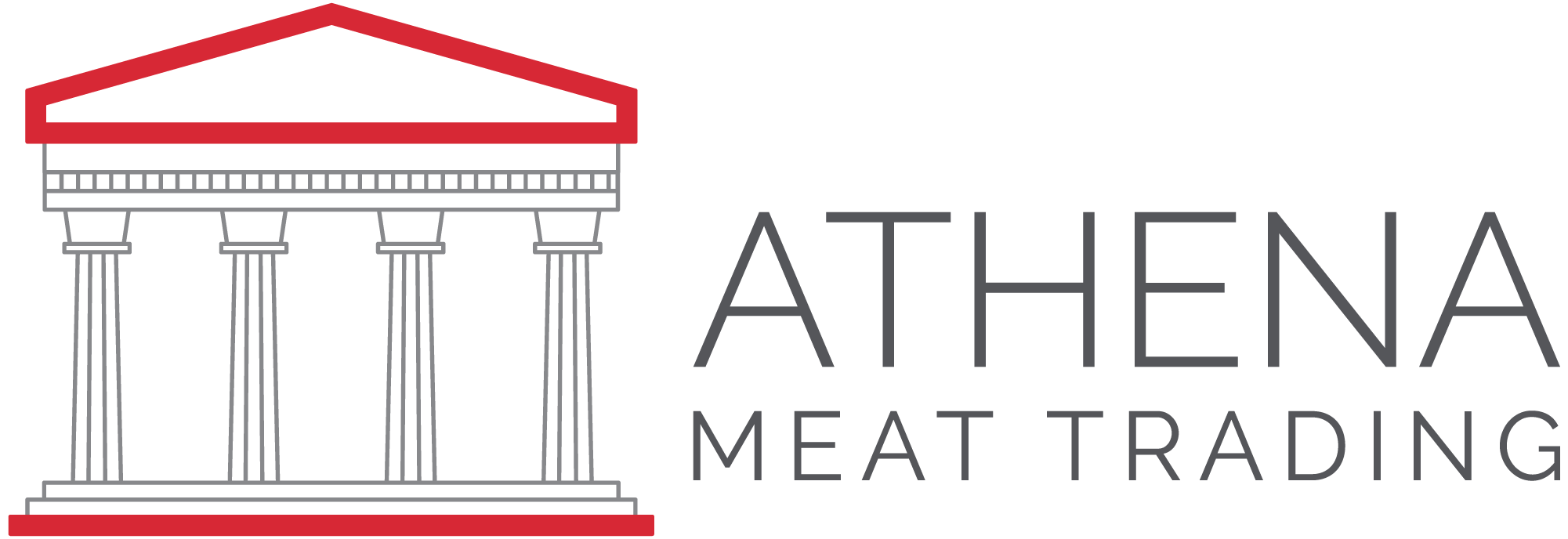Halal is a term of Arabic etymology meaning “permissible“. In this article, we will talk about Halal concerning food and beverage, specifically all aspects related to animal welfare, slaughter, transport, and sale.
Some of the animals that cannot be consumed (Haram, forbidden) are pigs, dogs, carnivorous animals, and in general any drink or food that may be harmful to health (such as alcohol) or any other semi-processed product of non-Halal derivation (sausages, pork products, etc.).
For foodstuffs not included in this short and non-exhaustive list, there are rules to be applied “from farm to fork” to maintain the “Halal” status, which must be certified by approved and recognized bodies.
What is and how is Halal meat produced?
Halal meat is produced according to certain rules that must be exactly respected well before the animal is slaughtered. In general, the animal must have been ‘well-treated.
The butchers are also subject to strict rules. They must be Muslim and healthy and must also pronounce the name of God before slaughtering the animal.
The cutting must be done in one go, with a sharp knife, and must cut the animal’s throat and both jugular and carotid arteries.
The animal, before being killed, must not see neither other slaughtered animals nor the sharpness of the knife.
After the butcher has cut the animal’s throat, it must be left free to bleed.
The transport plays an important role in maintaining the Halal integrity. In general, it must not be contaminated with non-Halal products.
Why is Halal Meat Market booming all over the world?
In 2020, there were more than 1.5 billion Muslims in the world, but it is expected that by 2030, there will be more than 2,2 billion. It is therefore clear that the Halal international market is booming globally, and by 2023 consumers will spend about 3 trillions dollars.
Even though Halal meat has been produced and sold for over 1400 years, it was only in 2004, at the instigation of Malaysia, that people began to talk about a global Halal meat market and not only linked to predominantly Muslim countries. Malaysia organized the first world event where certified Halal producers and buyers from all over the world met.
In 2006, the first “World Halal Forum”, in Kuala Lumpur, also attended by food giants such as Nestlé and McDonald’s, highlighted the real potential of the international halal market.
For European companies, it is still partly an unexplored market, but it is one of the fastest-growing segments in the coming years.
Athena is a solid presence in Halal international meat market and has a network of approved Halal producers.We can supply clients with any type of Halal meat they want, carefully following all the standards required to offer top-quality Halal meat. Butchers are carefully selected among those who have official certifications and Athena often personally visits the establishments.
Discover more about Athena Halal Meat trading services.
INSERIRE QUI LA MODALITA’ DI CONTATTO PRESCELTA.
Consumer’s demand: not only for Muslim market. Ethical reasons and new consumers
The demand for Halal products is not only related to Muslim consumers. To better understand why, it is necessary to consider the term “Halal” in a broader meaning. As already mentioned, it does not only refer to a food and beverage issue but can be understood as a whole ecosystem. Indeed, Halal products also include personal care products, detergents, cosmetics, etc.
With this concept, it is easier to understand why the demand for Halal products from non-Muslim consumers is increasing: in particular, Halal meat responds to the demand of new consumers who follow this philosophy.
Halal International meat market
The Halal meat market is growing by more than 11%. In 2020, the value of the Halal market was close to $2 trillion and imarcgroup’s research predicts that it will grow further in the coming years, due to the growth of both Muslim and non-Muslim ethical consumers.

The main actors of Halal international meat market are wholesale Halal meat distributors, Halal meat importers and halal meat exporters. Athena is directly involved in top quality halal meat sales and purchases worldwide.
Currently, two of the main issues that are slowing down the growth of the international market are the number of Halal meat producers and the number of certified inspectors available.
The key countries for this expansion are the US, Europe, the Philippines, Hong Kong, South Africa, and Vietnam.
US
In the US alone, the projected growth in the period 2020-2024 is $8 billion. Initially, the market demand was mainly formed by North African-Asian immigrants seeking halal products for religious reasons.
However, today Halal products can be chosen by new consumers, capturing new tastes and preferences, as well as offering an alternative to allergy and intolerance sufferers.
Halal meat distributors in the US noticed a big increase in demand by this new category of consumers, which is growing constantly.
The Philippines
The Philippines, despite being a predominantly Catholic country, has seen a very high increase in consumer demand for Halal meat in recent years.
Product quality and health safety are certain elements that have influenced the market. However, there is a lack of official in-house Halal certifiers to increase domestic supply, making the market attractive to international traders.
Halal meat trading
Halal meat trading is a complicated market because globally there is no universally valid standard and rules for Halal meat trading. Each country has a different discipline and in recent years efforts have been made to regularize and conform to the various rules both in meat export and in meat import.
There are standards, such as the Malaysian standard MS1500:2009, one of the most comprehensive and from which many others have developed, that is considered almost global and followed by more than 30 countries. Certification is done through the government’s religious department, JAKIM, which is in constant contact with the veterinary department.
There is also an important difference between Muslim and non-Muslim majority exporting countries. In general, Muslim majority countries in the past only produced Halal products and therefore did not feel the need for certification to import or export Halal products. However, in recent years they have been adapting to international standards and they are looking for certified Halal meat suppliers that can respond to their increasing demand.
At a regional level, the main organizations are ASEAN, and Gulf Standards Organization. At the global level, the Organization of Islamic Cooperation (OIC) & Standards and Metrology Institute for Islamic Countries (SMIIC) are currently the main bodies working on standardization. In any case, it is necessary to have the appropriate certificate for both import and export of meat.
In addition, distributors and wholesalers must also comply with strict rules and be approved. This is a guarantee of quality and safety for the end consumer and for the distributor who will be sure of the product purchased.
Import/Export rules for Halal meat
Each importer must have an import license. Each step of production, trade, and sale must follow specific rules.
In the case of slaughtering and production, the rules are globally recognized and are the ones mentioned at the beginning of this article. It is essential for any industrial producer, if they don’t produce exclusively Halal, to clearly separate the processes and never contaminate the two types of productions at any point in the biological cycle.
Secondly, it is essential to label and ship the product correctly, in general, it must always be traceable, and it must always be possible to trace it back to the producer.
The packaging must be dedicated and the way the meat is stored (additives, preservatives etc.) must also comply with the rules.
Logistics for Halal products are still underdeveloped, and it is not always easy to ship and organize products.
Athena has a wide network of Halal business partners and can easily respond to any customer’s need.
Want to know more about Athena Halal meat trading services? Please, contact us by roberta@athena-meat.com

